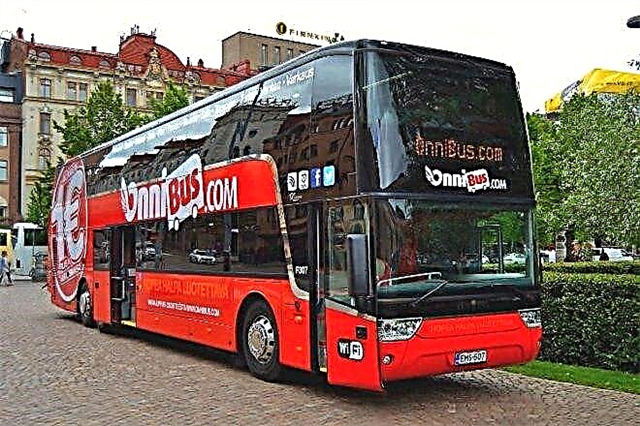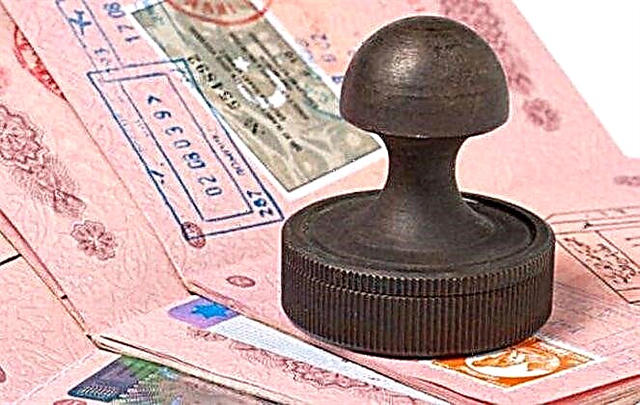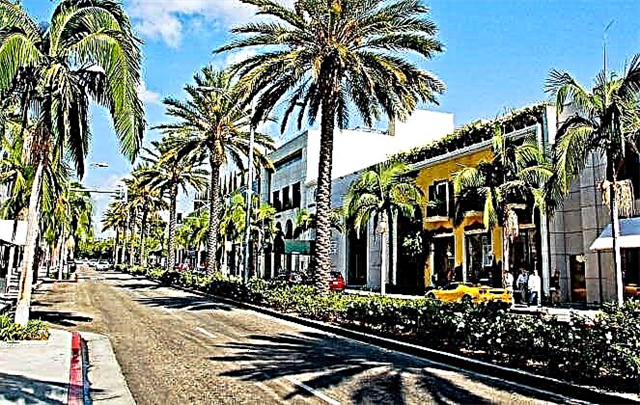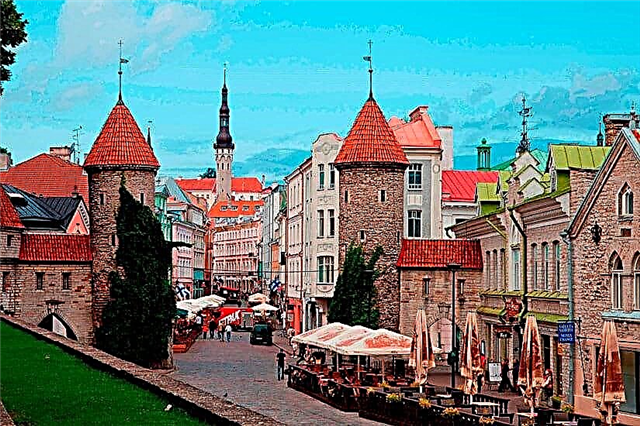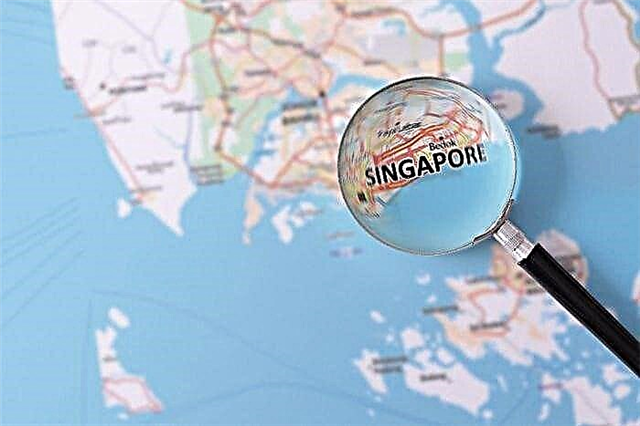Singapore is a small city-state on the Asian continent, distinguished by the highest standard of living and a favorable business climate for investment. The country attracts highly skilled migrants from all over the world, being one of the leaders in the technological field.
General information on business immigration to Singapore
The state supports both the relocation of specialists to the country and the rapid opening of their own company. In Singapore, a migrant does not have to formalize a case for a local resident or create fictitious companies - it takes about a day to register a small business with a visa and ready-made documents.
What is business immigration
Immigrants to Singapore are most often sent to the country by invitation from local corporations. People from the CIS countries rarely travel for low-skilled labor - the niche is almost entirely occupied by Asians from neighboring countries. People with a stable income or remote work often move because of the standard of living and the excellent climate.
Migration legislation actually prohibits moving to the country for a long time without a specific purpose - the migrant must get a job, open a business or invest in the country's economy. That is why the percentage of educated emigrants in the Russian diaspora in Singapore is very high.
What is a business visa and what type of visa you can get in Singapore
Business visa is an entry permit for entrepreneurs and employees who intend to live and work in the country.

It is divided into two types:
- EntrePass (for businessmen);
- Employment Pass (employees by invitation).
It is issued for a period of one to two years with the possibility of extension, in the second case, when the employer changes, the visa will have to be reissued.
A business visa is issued for more than six months, after receiving it, a migrant is practically equated with local residents when setting up a company.
For getting Entre Pass in addition to the standard package of documents, you will need:
You May Also Like
- Detailed business plan;
- Letters of recommendation from major partners;
- Company registration documents.
Family members of a migrant on a business visa can obtain a Dependant Pass or "Dependent Visa". The document has practically no restrictions, but if the head of the family loses the right to stay in the country, the rest will automatically lose their dependent visas.
What type of business is more profitable to open in Singapore
Three areas are noticeably developed in the country:
- Information Technology;
- Tourism;
- Services sector.

Small IT companies of several specialists often become representatives of small businesses: remote work allows you to earn money without being tied to the country's labor market. Medium-sized businesses mostly move entirely from other countries - legislation
Singapore allows you not to pay taxes on funds received outside the territory of the state, which makes a registered company a direct analogue of an offshore.
With big business, everything is somewhat more complicated - the more innovative and large-scale the business, the longer officials will consider the issue. Registration may require a government share: this will not only allow Singapore to receive income if the project is successful, but also create an airbag for participants in case of failure.
According to the reviews of compatriots who moved, the two main reasons for migration were safety and ease of doing business. Bureaucratic processes are maximally debugged, there are practically no delays in paperwork. Personal relationships and connections are very important: Asian culture leaves its mark.
Singapore immigration conditions for entrepreneurs
The visa is chosen depending on the line of business. Thus, a high-quality programmer can enter the country as an entrepreneur or innovator.
It is worth remembering that the Ministry of Labor of Singapore will check the migrant's company for compliance with the requirements in a year, and in case of failure, the visa will be revoked.
Starting in 2017, the lower limit for funding startups has been removed. Start-up capital requirement at 36 thousand dollars was excluded, and the assessment of the prospects of the project is carried out in an extended manner. According to the government, this was done to expand support for small businesses and increase the number of projects that do not require significant investments at the start.
You May Also Like
Choosing the required visa, conditions for obtaining it
Obtaining EntrePass is possible in three ways:
- Businessman;
- Innovator;
- Investor.
Each type of visa has its own requirements.
Businessman:
- Got at least 100 thousand dollars investments from the state or a venture capital company;
- Has significant experience in organizing startups or existing successful business in other countries;
- Participates in one of the government programs to support business in Singapore.

Innovator:
- Possesses intellectual property (such as a patent or software);
- The company cooperates with research institutes in Singapore;
- Has outstanding competence in areas related to the declared business.
Investor can provide a history of successful investments in startups.
EntrePass is not provided in the following areas of activity:
- Bars, coffee shops, outdoor cafes;
- Night clubs and karaoke;
- Massage, acupuncture, traditional medicine;
- Employment agencies.
Conditions for obtaining a residence permit, permanent residence, citizenship
Singapore citizenship is considered one of the most convenient for visa-free travel - the holder 159 countries are available. In addition, a Singaporean passport removes the last issues of residence in the country and protects against a sudden cancellation of a visa due to non-compliance with any formal requirements.
Obtaining citizenship for business visa holders is simplified and will take about five years. The first step is to obtain a residence permit / permanent residence after one or two visa extensions. Then, after two years of residence in the country, an application for citizenship is allowed.
Large investors can get permanent residence immediately after investment ~USD 1,800,000... In this case, citizenship will only take a couple of years.
The conditions for obtaining citizenship are not much different from most Asian countries:
- Stable income;
- Lack of socially dangerous diseases and previous convictions;
- Business legality.

Buying a ready-made business and starting from scratch
To buy a business in Singapore, in most cases you will have to register a new limited liability company. This not only protects against possible problems with creditors and the "legacy" of the old business, but also significantly simplifies the transfer of assets.
The purchase is carried out in five steps:
- Verbal agreement with the owner to buy a business;
- Registration of LLC (in terms of Singapore law - Pte Ltd);
- Drawing up a list of property passing to the new owner to avoid controversy. Agreement on the transfer of contact databases of customers and suppliers;
- Drawing up a sales contract. It is better to turn to lawyers - the service will cost about a thousand US dollars or more, depending on the scale of the transaction;
- Renewal of all key leases, personnel change (if necessary).
Due to the fact that the overwhelming majority of small and medium-sized businesses are registered as individual entrepreneurs, as well as as a result of the need to create their own company upon purchase, for the owner of a business visa, acquiring a business and running it from scratch is practically the same. Be careful when buying a startup - successful new ideas are rarely sold.
Common business options for Russian emigrants
The first massive wave of business emigration to Singapore from Russia started in the early 2000s, with the advent of the EntrePass program. During this period, there were practically no restrictions on the direction of business, so the vast majority of migrants began to open a cafe or massage parlor. In a city that is almost entirely a tourist center, such establishments were inexpensive and quickly paid off.
In the early 2010s, the city was covered by the second wave of migration - IT specialists. The simplicity of taxation and the high standard of living have made the city a haven for many individual entrepreneurs working remotely. The Singapore government directly encourages such private traders, creating a promising labor base for their corporations.
A significant part of Russians work in the service sector, selling their skills under the guise of a company or individual entrepreneur. Hairdressers and stylists, interior designers, private auto repair shops - half of the Russian companies are backed by a specific person with decades of work and unique experience.

Business ideas with minimal investment
The current trend in Singapore is shifting to online services and shipping where it used to be considered insane. Numerous online stores, car sharing services, ordering groceries and essential goods have not yet fully occupied a niche, so newcomers will have something to catch on.
A theme shop or a cafe with a national flavor may be popular. But it will be difficult to get a visa with such an offer - you will have to convince officials that the business is truly unique, and will not become another eatery out of thousands of similar ones.
A high-quality service, such as a car workshop with tuning cars or a studio that sews unique dresses, will also allow you to easily get a visa and income in the city itself.
Unless you have to provide a portfolio and prove to the migration service that the services are really high quality.
Examples of successful business
Dottinghill, a youth clothing and accessories store, offers temporary tattoos designed by independent artists. The site itself is an intermediary where artists post their work. With a sufficient number of applications, the tattoo is allowed into production, and the artist is paid a percentage of sales.
GottaGetGas project also serves as an intermediary between advertisers and car owners. Having pasted the logo of a well-known brand on the car, the participant will partially refuel at his expense.
More and more often the strangest tasks are outsourced. So, the company Synnovate Solutions offers catering establishments to give dishwashing to their specialists. Everyone wins - the restaurant owner gets rid of the problems with hiring dishwashers for a little more money, and the outsourcing company gets its money from the difference in salaries.
Legal nuances
There are more than a hundred public and private programs in the country that provide assistance in running and supporting business, and the tax legislation is one of the most flexible in the world. Before registering a company, you should consult with a professional lawyer about the best conditions.

Business registration
To register a company in the country, you will have to go through four stages:
1. Obtaining official permission for the name. It must be unique, and a number of additional words like "travel agency", "institute", "bank" are confirmed by additional licenses;
2. Collecting a package of documents... The standard set includes:
- Memorandum of association;
- The charter approved at the general meeting;
- Confirmation of the company's compliance with the law;
- Information about the founders, copies of their passports.
3. Signature of documents. Carrying out the procedure on the territory of Singapore will significantly reduce the processing time;
4. Submission of documentsin the official register together with the payment of a state fee of 330 local dollars.
Taxation
There are two taxes in the country for 2021:
- Income with a progressive rate;
- VAT.
Value added tax was introduced several years ago and is only 3%, the income tax rate is 17% since 2010.
There are many programs and tax incentives - for example, with a company's total revenue of up to $ 300,000, the tax will be cut in half. Innovative companies can get pioneer status by being completely tax-exempt for several years.
You will have to pay additionally for:
- Use of cars (transport tax);
- Provision of services (service fee);
- Hiring foreign employees.
Other nuances
The country's business language is English, although in private many people use Chinese or Malaysian. For everyday communication and work, English is quite enough.
The biggest problems with registration can be the choice of name. A non-unique or just similar to a global / local brand name of the company will cause a lot of problems and delays in registration.
You can also run a business with a tourist visa. In this case, the company will need to hire a local managing director and secretary.
Tips for Singaporean Business Immigrants
When starting a business in Singapore, there is no need to try to “cut corners” or simplify the procedure. Punishments for breaking the law in the country are very tough - even small fines for garbage thrown on the ground begin from 500 Singapore dollars. In the case of more serious offenses, the migration service will not hesitate to deprive the violator of the visa.
You shouldn't skimp on the facade and small services: 75% The population of the country is ethnic Chinese and Malaysians, personal contacts and a respectable face are very important in their culture. As an example: local businessmen wear business suits even in 40 degree heat, and even the most profitable business can fail without a personal meeting.
The benchmark of an Asian country with hardworking people and the rule of law, Singapore is a great place to live and start a business. The magnificent location, tropical climate and proximity to the ocean have made this state not only one of the best resorts in the world, but also a great place to work and live.





